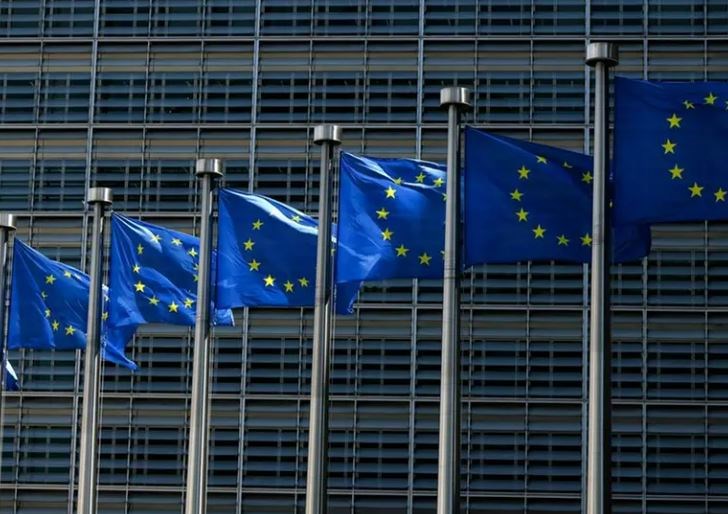Russians banned from bringing cars, goods into EU
In a recent update from the European Commission, restrictions on Russian products imported into the European Union have been expanded to include vehicles registered in Russia.
-

European Union flags fly outside the European Commission building in Brussels on June 16, 2022. (AFP)
Customs authorities at the EU borders can now seize cars registered in Russia, as per an update provided by the European Commission on September 8th regarding Russian products banned from import into the European Union.
The new measures will affect Russian individuals who wish to travel to the European Union with their personal vehicles, including for short stays. The European Commission noted that each member state would decide how to implement this decision.
Additionally, the update indicated that the list of products Russians cannot bring with them into the European Union also includes laptops, smartphones, cosmetics, and personal clothing.
In response to this decision, Maria Zakharova, the official spokesperson for the Russian Ministry of Foreign Affairs, criticized it as "blatantly racist" and stated that these measures are not related to sanction policies, but rather aimed at generating additional benefits for the European Union's economy.
In the same context, the spokesperson for the European Commission, Daniel Ferrie, emphasized that member states must strictly enforce the ban on importing these products, including cars. Even if the vehicle is not actually imported but crosses the border for tourism or short stays, it would be prohibited from entering the EU.
It is worth noting that Russia considered all sanctions imposed by the collective West, namely the United States, the European Union, the United Kingdom, and other allies, to constitute an economic declaration of war.
The Kremlin has pledged that Russia will never yield to Western pressure regarding the situation in Ukraine, asserting that Russians are facing unjust discrimination in Western countries amid a surge of Russophobia.
The hysteric sanctions, unprecedented in history in terms of volume and period span in which they were adopted, did not subdue Moscow, rather, they left the EU's most powerful countries most notably Germany vulnerable to rising energy prices and sticky inflation rates.
Read next: Russian billionaires taking funds out of Europe back home: Bloomberg

 2 Min Read
2 Min Read










